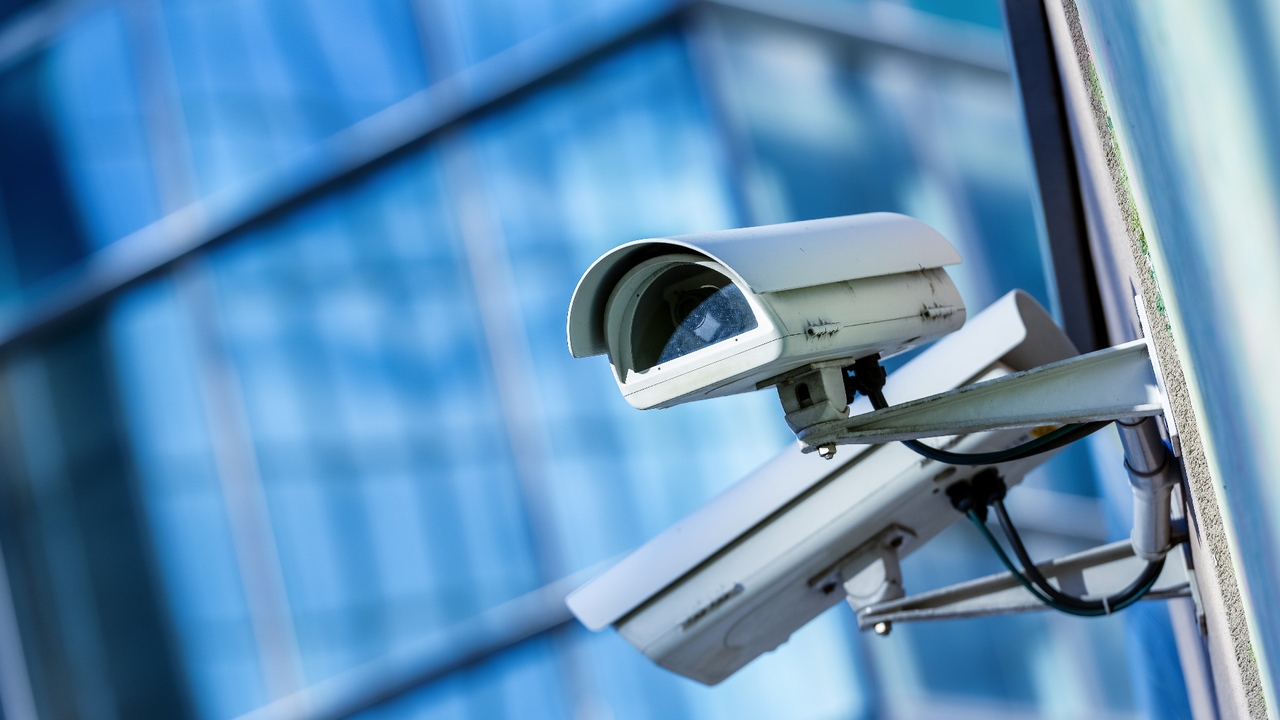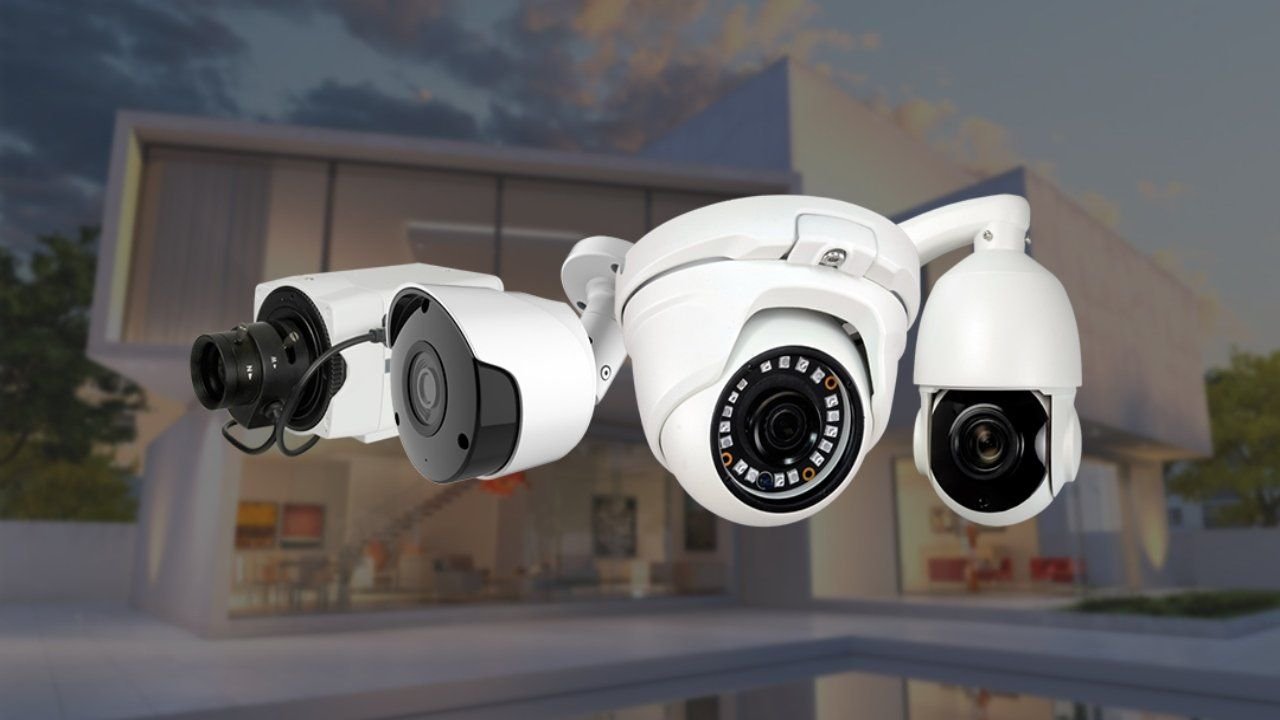Introduction Surveillance Cameras for Enhanced Security
In an era denoted by rising tensions, the volume of hardy shield measures has become necessary. As offense rates rush and safety concerns escalate, the role of CCTV cameras in controlling and recording incidents has earned the distinction. Surveillance Cameras for Enhanced Security Explore with us the growth, types, and benefits of these essential control means.

Evolution of CCTV Technology
Essay on travel through the action of CCTV technology, witnessing its transformation from early analog systems to the existing era of high-definition IP cameras, shaping the geography of the stylish lookout.
-
Historical perspective on the development of CCTV cameras
Delve into the history to uncover the fascinating historical viewpoint on the evolution of CCTV cameras. From their humble births, these surveillance marvels have experienced a great journey, evolving to become vital tools in protecting our surroundings through cutting-edge technology and clever answers.
-
Advances in technology and their impact on CCTV systems
Explore the active synergy between technological advances and CCTV systems, witnessing a profound consequence on surveillance capacities. From enhanced image resolution to smarter functionalities, these innovations redefine how we sense and utilize CCTV cameras, elevating them beyond mere protection tools to essential components in our connected world.
Types of CCTV Cameras
Discover the diverse landscape of CCTV cameras, each with unique features and applications. From standard analog cameras to modern IP and HD variants, it is important to understand the types of guarantee-tailored solutions for various management needs.

-
Overview of different types of CCTV cameras (Analog, IP, HD, etc.)
Gain wisdom into the world of CCTV cameras with an insightful overview of various types, including Analog, IP, HD, and more. Explore the distinct markers and applications that each type offers, enabling you to make informed decisions in selecting the ideal surveillance solution for your exact needs.
-
Pros and cons of each type
Navigate the minute choices in CCTV cameras by comprehending the pros and cons of each type. From the reliability of Analog to the flexibility of IP and the clarity of HD, a complete overview ensures informed decision-making, matching the strengths of each type to your distinctive surveillance needs.
Key Components of a CCTV System
Uncover the basis of effective surveillance as we explore the key components of a CCTV system. Cameras, DVRs/NVRs, cables, and monitors form a cohesive network, utilizing a couple to secure a wide security range.

-
Cameras
At the heart of any CCTV system lies the essential component – cameras. These sharp eyes catch crucial footage, from crisp daylight snaps to infrared night vision. Whether analog or IP, the type of camera chosen shapes the control capabilities, making it a pivotal relation in security setups.
-
DVRs/NVRs
Delve into the brainiacs of a CCTV system with DVRs (Digital Video Recorders) or NVRs (Network Video Recorders). These machines store and manage the captured footage, offering parts like slight access and playback, converting raw data into actionable understandings for expanded safety and comfort of mind.
-
Cables and connectors
Unseen but important, the backbone of any CCTV system lies in its cables and connectors. These unsung heroes transfer power and data, assuring seamless transmission between cameras and clerks. Robust cables and connectors are the unsung architects of a reliable surveillance infrastructure.
-
Monitors
Monitors, the vigilant observers of a CCTV system, bring captured footage to life. Whether displaying real-time feeds or reviewing recorded events, these screens are the windows into the security landscape. Their clarity and responsiveness are crucial, providing real-time insights and facilitating prompt responses to potential threats.
Placement Strategies for CCTV Cameras
Master the art of surveillance with strategic placement strategies for CCTV cameras. Whether safeguarding indoor spaces or monitoring outdoor perimeters, understanding optimal locations ensures comprehensive coverage, enhancing the effectiveness of your security setup.

-
Strategic locations for maximum coverage
Selecting strategic locations for CCTV cameras is paramount for maximum coverage and effectiveness. Placing cameras at entry points, high-traffic areas, and vulnerable spots ensures comprehensive surveillance. Outdoor cameras can secure perimeters, while indoor placement covers critical zones. This thoughtful approach guarantees a robust security net, deterring potential threats and providing peace of mind.
-
Considerations for indoor and outdoor installations
Balancing indoor and outdoor installations requires thoughtful considerations. For indoor setups, focus on covering critical areas, such as entry points and valuable assets. Outdoor installations demand weather-resistant cameras, covering perimeters effectively. Smashing this balance provides seamless management, handling both internal openness and external threats and designing a wide security infrastructure.
Benefits of Using CCTV Cameras
Unlock a domain of security benefits with CCTV cameras. From preventing criminal activities to delivering vital proof, these surveillance tools offer exceptional peace of mind, safeguarding homes, corporations, and public areas.
-
Crime deterrence
CCTV cameras stand as sharp guardians, discouraging criminal activities through their sharp gaze. Their mere fact signals that every move is monitored, preventing potential criminals and creating a decisive barrier against unlawful actions. The crime deterrence aspect of CCTV cameras reinforces their role as fierce security criteria.
-
Monitoring and surveillance
Beyond very crime deterrence, CCTV cameras excel in constant monitoring and management. These watchful eyes tirelessly capture and record activities, providing real-time insight into the surroundings. This proactive approach enables swift responses to potential threats and ensures a heightened sense of security.
-
Evidence collection
CCTV cameras go further, serving as trustworthy tools for proofreaders. In the event of incidents, reported footage becomes crucial evidence for investigations and lawful proceedings. This dual functionality elevates CCTV cameras as indispensable agents in maintaining security and promoting justice.
Challenges and Solutions
Navigate the complex landscape of CCTV systems by addressing common challenges and analyzing effective resolutions. From incidental spots to technical issues, understanding and overcoming these hurdles ensure robust and reliable leadership.

-
Common challenges faced in CCTV camera installations
Embarking on CCTV camera facilities presents challenges, including identifying optimal camera sites and handling potential blind spots. Steering through cable management hardships and ensuring seamless connectivity are common hurdles. Understanding and crushing these challenges is vital for a successful management infrastructure.
-
Technological advancements addressing these challenges
Specialized strides have risen to meet challenges in CCTV buildings. Smart advancements, including scenic cameras, artificial intelligence-driven analytics, and wireless connectivity, handle issues like blind spots and cable management. These creations enhance the efficacy and reliability of surveillance systems, ensuring total coverage.
DIY vs. Professional Installation
Choose between the do-it-yourself (DIY) approach and professional installation when selecting CCTV systems. Entertaining the pros and cons is crucial to determining the most effective and efficient answer for your essentials.
-
Pros and cons of do-it-yourself CCTV installations
Choosing a DIY CCTV facility saves money while also providing hands-on knowledge. However, defects may include technical challenges and potential oversights. Offsetting convenience with expertise is essential when determining whether to embark on a DIY supervision structure.
-
Advantages of hiring professionals
Enlisting professionals for CCTV installation brings undeniable advantages. Expertise ensures optimal system performance, addressing technical intricacies and potential challenges. Professionals offer tailored solutions, guaranteeing comprehensive coverage and peace of mind, and investing in professional installation is a prudent choice for a robust surveillance infrastructure.
Privacy Concerns
-
Balancing security with privacy
Maintaining a delicate compensation between protection and solitariness is imperative when deploying CCTV cameras. Permitted adherence, transparent practices, and respecting unique privacy rights are crucial aspects. Striking this balance provides effective security measures without compromising the individual freedoms of those under surveillance.
-
Legal considerations and best practices
Embarking on the use of CCTV cameras requires a slight understanding of legal concerns and adherence to the best techniques. Complying with privacy laws, obtaining consent where required, and executing ethical surveillance protocols safeguard both security goals and unique rights.
Future Trends in CCTV Technology
-
Artificial intelligence integration
Artificial intelligence integration represents a transformative leap in CCTV technology. Assigning cameras with AI capabilities enhances real-time analytics, enabling aggressive threat detection and mechanical responses. This synergy of AI and management technology shapes an end where CCTV techniques become smart guardians, actively securing our surroundings.
-
Cloud-based solutions
Enter the era of cloud-based solutions for CCTV systems. Shifting from traditional storage to cloud platforms offers scalability, accessibility, and remote management. This evolution not only streamlines data storage but also transforms surveillance into a more dynamic, flexible, and efficient experience.
-
Smart and connected systems
Witness the evolution of CCTV systems into smart and connected ecosystems. Interconnected devices, real-time data sharing, and seamless integration with other smart technologies define this futuristic trend. These systems promise heightened efficiency, instant response capabilities, and a more interconnected approach to surveillance.
How to Choose the Right CCTV System
Steer the various options by comprehending how to pick the proper CCTV design. Evaluate factors such as purpose, budget, and desired features to make an educated decision tailored to your explicit needs.

-
Factors to consider when selecting CCTV equipment
Choosing the correct CCTV kit involves careful consideration of various factors. Evaluate your specific management needs, appropriation limitations, and desired markers. Assessing camera resolution, recording capabilities, and compatibility ensures that the selected equipment aligns seamlessly with your security requirements.
-
Budget considerations
Budget reviews play a pivotal position in selecting a CCTV system. Define your financial parameters, considering the costs of cameras, recorders, and other features against available funds. Striking a balance between affordability and functionality guarantees an effective shield solution within your financial rules.
Maintenance and Troubleshooting
Ensure the longevity and optimal implementation of your CCTV method with good care and troubleshooting. Regular upkeep and a proactive approach to addressing everyday issues are essential for uninterrupted management.
-
Tips for keeping CCTV systems in optimal condition
Sustain the peak performance of your CCTV systems with proactive measures. Regularly inspect cameras, clean lenses, and ensure proper cable connections. Update firmware and software, conduct routine tests, and keep a log of maintenance activities. Collectively, these tips contribute to a consistently reliable surveillance infrastructure.
-
Common troubleshooting issues and solutions
Addressing common troubleshooting issues is vital for maintaining CCTV system functionality. From connectivity glitches to camera malfunctions, understanding and implementing solutions, such as cable checks and firmware updates, ensures quick resolutions. Proactive troubleshooting guarantees uninterrupted surveillance, fostering long-term system reliability.
Real-Life Success Stories
-
Examples of how CCTV cameras have prevented crimes
Uncover clear instances where CCTV cameras have been suited as crime deterrents, preventing illicit actions. Whether through the visible company of cameras or timely intervention, these illustrations highlight the aggressive role of surveillance technology in defending communities and businesses from possible threats.
-
Testimonials from satisfied users
Hear firsthand from happy users who attest to the usefulness of CCTV systems. Testimonials honoring the role of cameras in deterring crimes, providing peace of mind, and facilitating quick responses stress the tangible impact and satisfaction derived from financing in quality management answers.
Industry Standards and Certifications
Guiding the realm of CCTV systems involves understanding initiative bars and certifications. Recognized measures ensure the reliability and quality of control equipment, coaching users to make informed decisions for their safety needs.
-
Recognized standards for CCTV systems
Dive into the world of CCTV systems by understanding recognized standards. These benchmarks, established to guarantee performance and reliability, guide users in selecting surveillance equipment that adheres to industry-set criteria. Compliance with such standards ensures a robust and effective security infrastructure.
-
Importance of certifications for quality assurance
Emphasizing the importance of certifications for quality assurance in the realm of CCTV systems is important. Certifications validate observation to drive standards, assuring users of the tools’s reliability, functionality, and the plant’s commitment to furnishing high-quality surveillance solutions.
Conclusion
FAQs
Can I install CCTV cameras on my own?
While DIY installations are possible, hiring professionals ensures expertise and optimal system performance.
How do I balance security with privacy when using CCTV cameras?
Understanding legal considerations and implementing best practices helps strike a balance between security and privacy.
What are the upcoming trends in CCTV technology?
Artificial intelligence integration, cloud-based solutions, and smart, connected systems represent the future trends in CCTV technology.
How often should I maintain my CCTV system?
Regular maintenance is recommended to ensure the longevity and optimal performance of CCTV systems.









